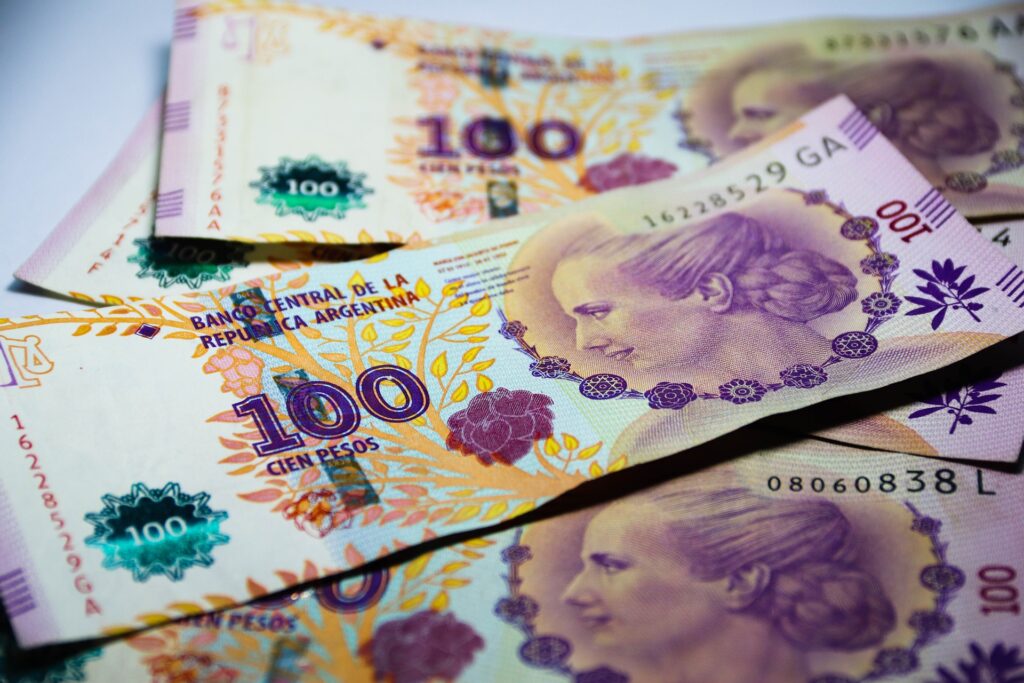Argentina ended 2023 with an annual inflation rate of 211%. If this were to happen in the USA, it would mean that the pair of jeans you bought for $30 in January, would have ended up costing over $60 by the end of the year. The people of Argentina are quite used to high levels of inflation and have learned to live with it as best as possible because for many, it seems never-ending. There isn’t a single reason as to why Argentina has such high inflation, which is what makes it such a dilemma for the country.
The history of inflation in Argentina
Since 1945, Argentina has been among the countries with the world’s highest inflation rates, averaging 189% annually between 1944-2024.
Varying governments over the years have been consistently unable to stabilise the economy.
There are many reasons why Argentina has such high inflation, but it all began in the 1940s when the government at the time introduced new social policies and subsidies, with the intention of directing more money towards workers and transferring money from the rich to the working classes.
The problem was that the new benefits and subsidies introduced weren’t backed by anything, nor did they come as a result of a period of economic prosperity. Instead, the idea was to redistribute what the country already had. The result of this was an increase in production costs for companies, and consequently an increase in prices in general; then leading to inflation.
Since then, there have been many other factors which have contributed to the continuation of inflation. For a long time, Argentina has been heavily reliant on the International Monetary Fund (IMF). During the 2018 financial crisis, foreign debt obligations reached unsustainable levels in Argentina and as a result, the Argentine Peso collapsed against the US dollar. In response, the president, Mauricio Macri, requested a relief package from the IMF worth $57 billion, with the promise of reducing inflation and public spending. Neither of these things happened however and inflation continued to increase.
In 2019, Mauricio Macri was succeeded by Alberto Fernández as president and in May 2020, Argentina reached a default (a failure to comply with the legal obligations of a loan) when the government failed to make an interest payment of $500 million to foreign creditors. The default meant that the government lost a lot of its access to finance, with the COVID-19 pandemic adding to economic stress. As a result, the government resorted to printing more money and consequently inflation continued to soar.
The current state of the Argentine economy
Currently, inflation remains high in Argentina, with the added problem of drastic price increases. The cost of living has increased to the point that prices aren’t too different from countries such as Spain. In some cases, things are more expensive than in the UK or US.
Argentina’s new president, Javier Milei, has plans to improve the state of the Argentine economy. One of his main policies is to dolarize the economy, meaning to effectively replace the Argentine Peso with the US dollar. He also wishes to remove Argentina’s central bank and privatise many areas of industry.
So far, it’s estimated by some that in the second half of 2024, a decrease in inflation will be seen. Some disagree, however. Surprisingly, since Milei’s inauguration, the exchange rate between the Argentine Peso and the US dollar has remained stable.
Is the future looking bright?
I’m no economist, so take what I write with a pinch of salt.
The World Bank, however, recently predicted that in 2024, Argentina will see a 2.7% increase in its GDP, followed by a growth of 3.2% in 2025.
The future of the Argentine economy is dependent on many different factors. Perhaps one of the most important is the maintenance of political stability. Over recent years, government has changed hands on several occasions and important decisions have been made and reversed repeatedly.
A period of political consistency, along with smart economic policies, is arguably what Argentina needs to improve its economic situation.
As for the people of Argentina, the country is generally divided over what’s best for the country. Many back Javier Milei’s policies, whilst others believe that he’ll only make a bad situation worse. It’s perhaps too early to say anything with certainty now, but hopefully Argentina can find a way out of the economic hole it finds itself in and overcome inflation.

